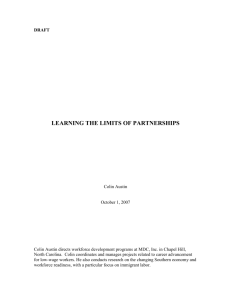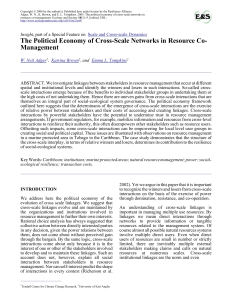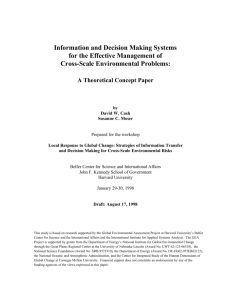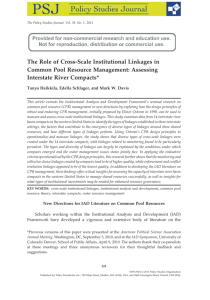OrozcoBerkes_Abstract Linkages Paper
advertisement
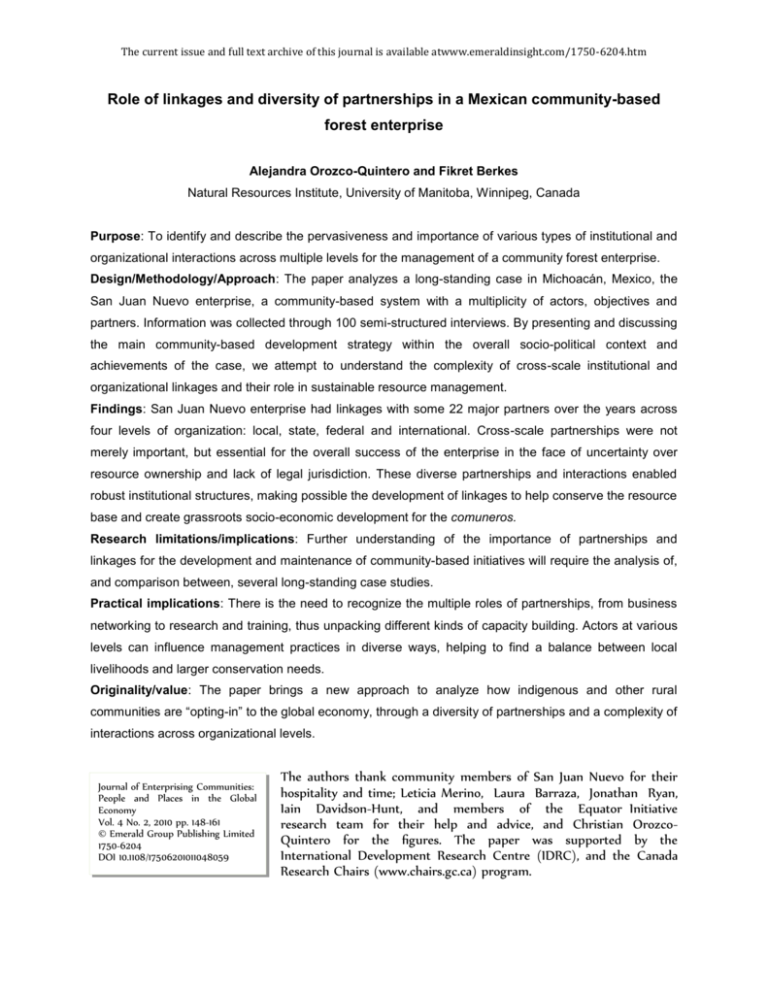
The current issue and full text archive of this journal is available atwww.emeraldinsight.com/1750-6204.htm Role of linkages and diversity of partnerships in a Mexican community-based forest enterprise Alejandra Orozco-Quintero and Fikret Berkes Natural Resources Institute, University of Manitoba, Winnipeg, Canada Purpose: To identify and describe the pervasiveness and importance of various types of institutional and organizational interactions across multiple levels for the management of a community forest enterprise. Design/Methodology/Approach: The paper analyzes a long-standing case in Michoacán, Mexico, the San Juan Nuevo enterprise, a community-based system with a multiplicity of actors, objectives and partners. Information was collected through 100 semi-structured interviews. By presenting and discussing the main community-based development strategy within the overall socio-political context and achievements of the case, we attempt to understand the complexity of cross-scale institutional and organizational linkages and their role in sustainable resource management. Findings: San Juan Nuevo enterprise had linkages with some 22 major partners over the years across four levels of organization: local, state, federal and international. Cross-scale partnerships were not merely important, but essential for the overall success of the enterprise in the face of uncertainty over resource ownership and lack of legal jurisdiction. These diverse partnerships and interactions enabled robust institutional structures, making possible the development of linkages to help conserve the resource base and create grassroots socio-economic development for the comuneros. Research limitations/implications: Further understanding of the importance of partnerships and linkages for the development and maintenance of community-based initiatives will require the analysis of, and comparison between, several long-standing case studies. Practical implications: There is the need to recognize the multiple roles of partnerships, from business networking to research and training, thus unpacking different kinds of capacity building. Actors at various levels can influence management practices in diverse ways, helping to find a balance between local livelihoods and larger conservation needs. Originality/value: The paper brings a new approach to analyze how indigenous and other rural communities are “opting-in” to the global economy, through a diversity of partnerships and a complexity of interactions across organizational levels. Journal of Enterprising Communities: People and Places in the Global Economy Vol. 4 No. 2, 2010 pp. 148-161 © Emerald Group Publishing Limited 1750-6204 DOI 10.1108/17506201011048059 The authors thank community members of San Juan Nuevo for their hospitality and time; Leticia Merino, Laura Barraza, Jonathan Ryan, Iain Davidson-Hunt, and members of the Equator Initiative research team for their help and advice, and Christian OrozcoQuintero for the figures. The paper was supported by the International Development Research Centre (IDRC), and the Canada Research Chairs (www.chairs.gc.ca) program.
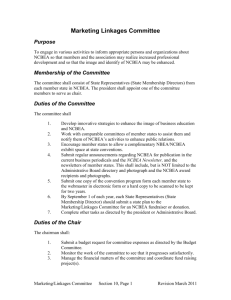
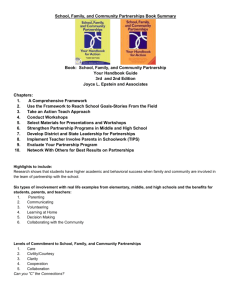

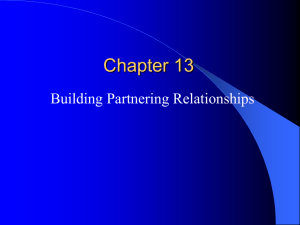
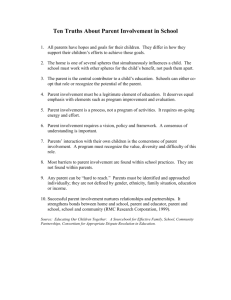
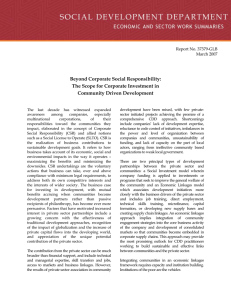
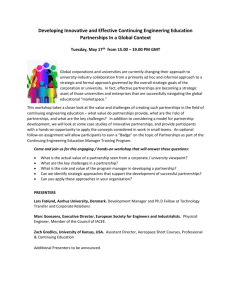
![[DOCX 51.43KB]](http://s3.studylib.net/store/data/007172908_1-9fbe7e9e1240b01879b0c095d6b49d99-300x300.png)


